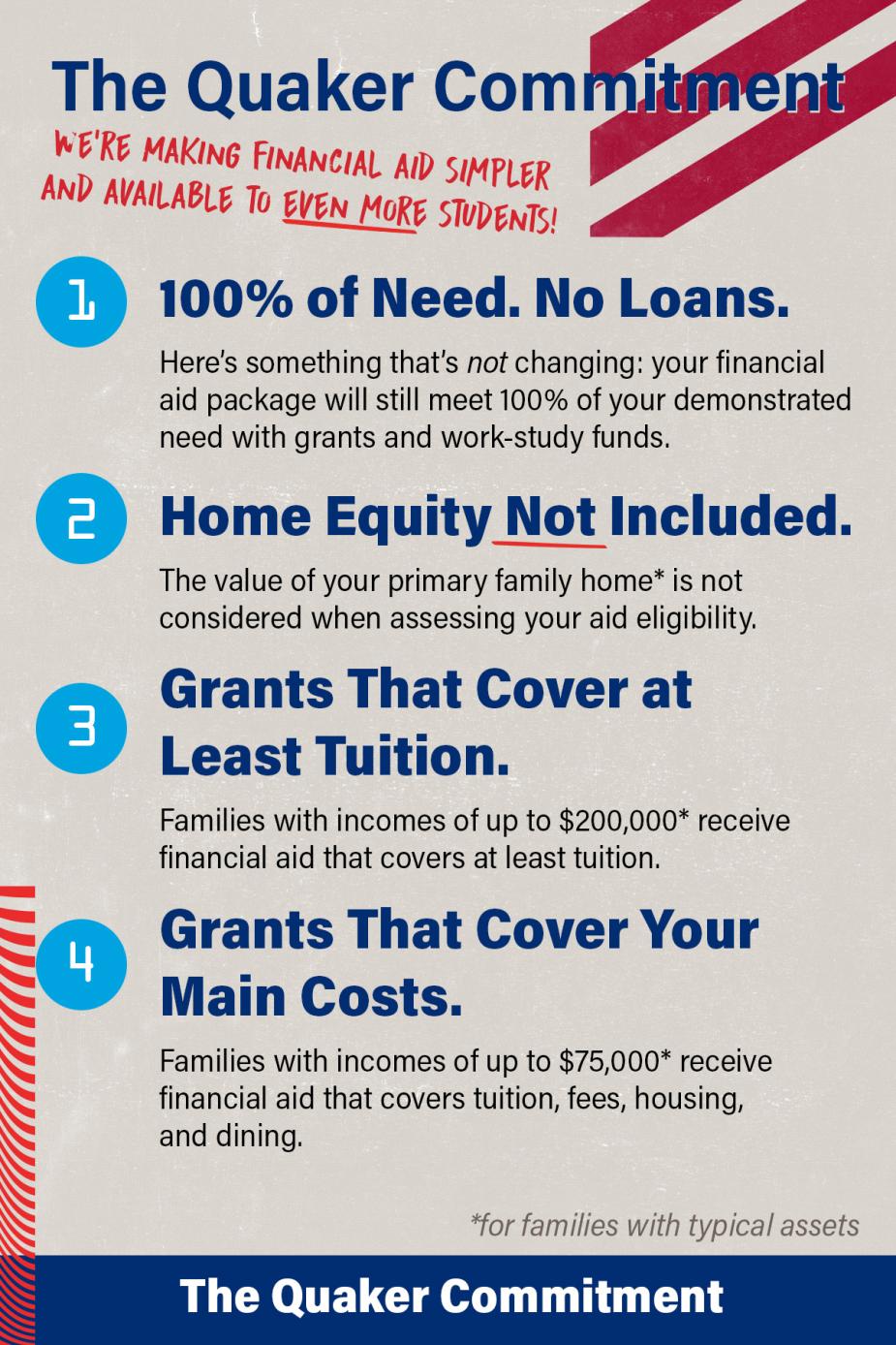
Penn’s Quaker Commitment expands financial aid for middle-income families
Last month, Penn shared changes to our financial aid application to ensure the process was as simple and easy to follow as possible. And guess what? We didn’t stop there!
Yesterday, Penn announced the Quaker Commitment, a comprehensive financial aid initiative aimed at supporting families from middle-and-upper-middle-income backgrounds. The main changes are that Penn is no longer considering primary home equity when determining your eligibility for financial aid, and families who make up to $200,000 (with typical assets) are now eligible to receive financial aid packages that cover at-minimum full tuition. The prior income threshold for this guarantee was $140,000.
So, what does this mean for you? Let’s break it down further.
The graphic below combines the new elements for middle-income families with our existing commitment to low-income families through the Penn First Plus program, all built on our foundational approach to meet 100% of demonstrated need with no loans. Thanks to the Quaker Commitment, these are now the four main things you need to know about financial aid at Penn starting with the 2025-2026 school year (that’s right – if you’re applying to Penn this year, you’ll be able to benefit from these changes right away!):
- Penn will meet 100% of need. No loans.
Here’s something that’s not changing: your financial aid package will still meet 100% of your demonstrated need with grants and work-study funds. - Home equity not included.
The value of your primary family home* is not considered when assessing your aid eligibility. - Grants that cover at least tuition.
Families with incomes of up to $200,000* receive financial aid that covers at least tuition. - Grants that cover your main costs.
Families with incomes of up to $75,000 receive financial aid that covers tuition, fees, housing, and dining.
*for families with typical assets



